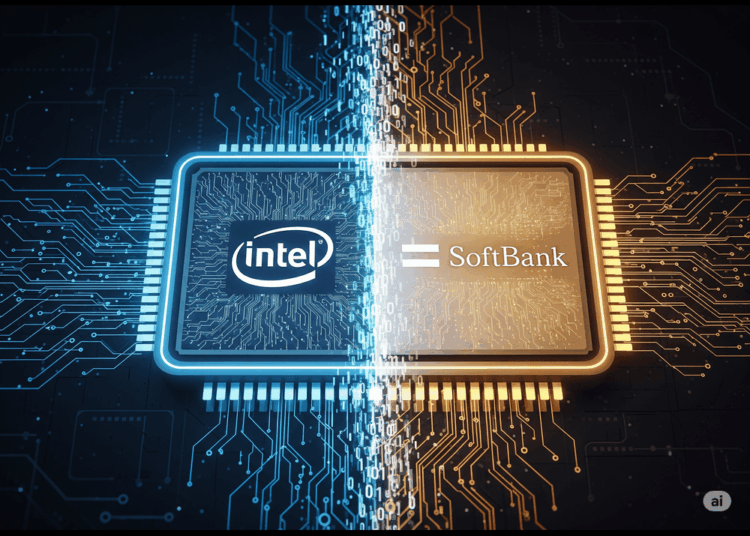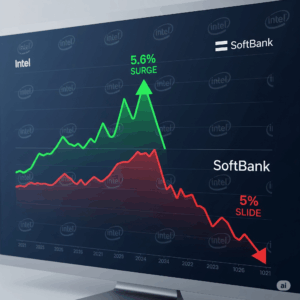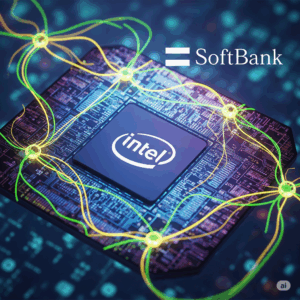Intel has received a $2 billion equity investment from SoftBank, marking a significant financial lifeline for the struggling U.S. chipmaker. The deal, announced Monday, makes SoftBank the sixth-largest Intel shareholder and reflects the Japanese conglomerate’s growing bets on artificial intelligence and advanced semiconductor manufacturing.
SoftBank will acquire just under a 2% equity stake in Intel by purchasing newly issued common stock at $23 per share, slightly below Intel’s Monday closing price of $23.66. Following the announcement, Intel’s stock surged 5.6% in after-hours trading, while SoftBank’s own shares fell more than 5%.
SoftBank’s Strategic Move in AI and Chips
Masayoshi Son, SoftBank’s CEO, emphasized that the investment aligns with the company’s vision of expanding semiconductor manufacturing in the U.S. and building a strong foundation for the AI-driven future.
“This strategic investment reflects our belief that advanced semiconductor manufacturing and supply will further expand in the United States, with Intel playing a critical role,” Son said in a statement.
The investment adds to SoftBank’s string of ambitious projects, including a $500 billion Stargate data center initiative and a $30 billion commitment to OpenAI. SoftBank also recently announced a collaboration with Taiwan’s Foxconn to produce data center equipment in Ohio.
Intel’s Struggles and the Path to Recovery
Intel has been grappling with multiple challenges over the past few years. Once the undisputed leader in chipmaking, Intel has steadily lost ground to rivals such as AMD and Taiwan Semiconductor Manufacturing Company (TSMC). In 2024, Intel recorded an $18.8 billion loss—its first annual loss since 1986.
The company’s ambitious but underperforming chip foundry business has yet to attract major customers, prompting reports that Intel may overhaul its contract chip manufacturing model. Analysts believe that Intel’s dual role as both chip designer and fabricator positions it as a crucial player in America’s efforts to counterbalance TSMC’s dominance.
Charu Chanana, chief investment strategist at Saxo, noted:
“Intel’s dual role as designer and manufacturer/fabricator uniquely positions it as potentially the best platform in the U.S. to compete with TSMC.”
SoftBank’s equity injection comes amid speculation that the U.S. government may also buy a stake in Intel. Bloomberg recently reported discussions about Washington potentially acquiring up to 10% of the company.
However, sources confirmed that SoftBank’s decision to invest in Intel is not connected to U.S. politics, despite a recent high-profile meeting between Intel CEO Lip-Bu Tan and President Donald Trump.
Importantly, SoftBank will not take a board seat or commit to purchasing Intel’s chips. The investment is purely equity-based, signaling financial support rather than operational involvement.
What This Means for Intel’s Future
The $2 billion SoftBank investment is a strong signal of confidence in Intel’s turnaround strategy. For SoftBank, it represents another bold move in positioning itself at the heart of the global AI revolution.
With rising competition, mounting losses, and pressure to modernize its foundry business, Intel’s success now depends on securing large-scale contracts and regaining industry leadership. This investment may provide the financial cushion Intel needs to pursue aggressive expansion and restructuring.
Stay ahead of the latest global business shifts with IMPAAKT, featured in the top business magazine.














